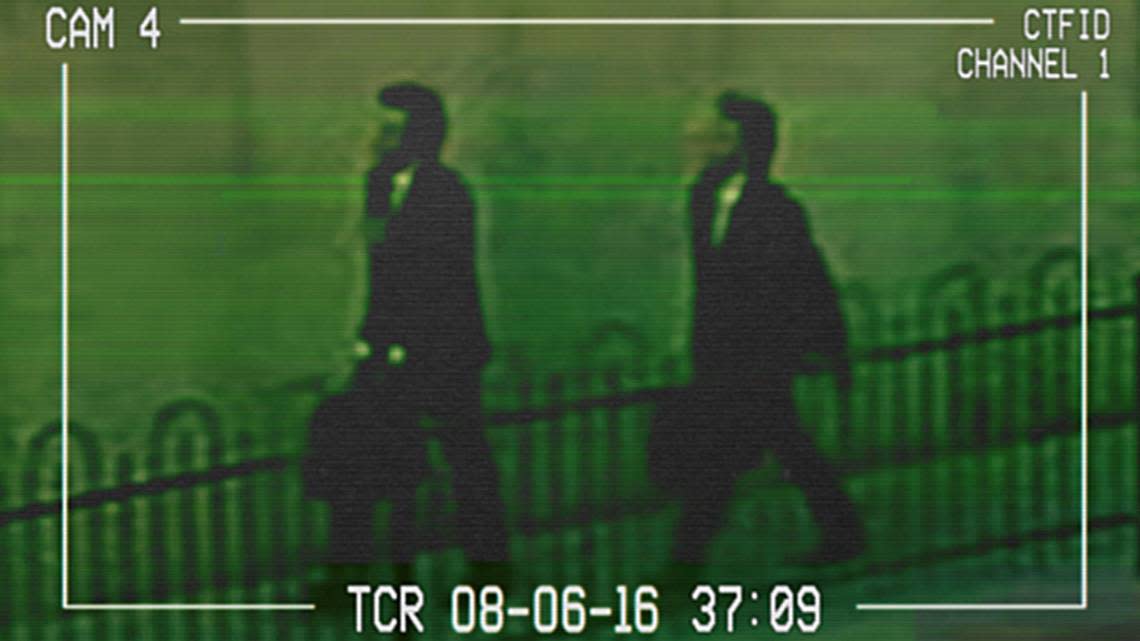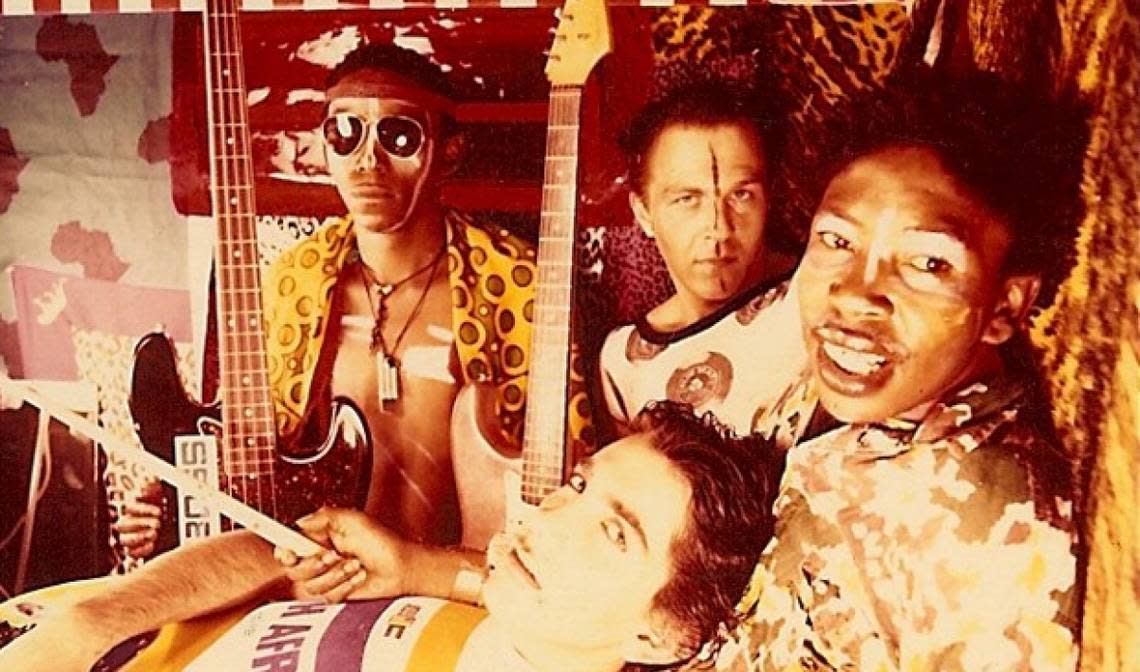Miami Jewish Film Festival returns to theaters for the first time since the pandemic
This year’s Miami Jewish Film Festival represents much more than a few days to watch the latest and greatest movies made by Jewish filmmakers.
In a time when reopened movie theaters have been struggling to attract audiences and antisemitism has been rising in the United States, the festival’s organizers say the 26th edition is an opportunity for the community — both Jews and non-Jews — to unite.
“It is an essential time for Jewish voices to make themselves heard,” said Igor Shteyrenberg, the festival’s executive director. “The stories that are part of this year’s Miami Jewish Film Festival lineup are hopeful, romantic, rebellious, and daring, and will remind us that our visibility, heritage, and community spaces are always worth fighting for as we celebrate who we are.”
For the first time since the start of the pandemic, the Miami Jewish Film Festival returns to in-person programming from Jan. 12 to 26. Seven local venues will host the festival this year, including the Miami Theater Center in Miami Shores, the Coral Gables Art Cinema, the Cosford Cinema, the Miami Beach Bandshell, the O Cinema South Beach, the Miami Beach Jewish Community Center and the Michael-Ann Russell Jewish Community Center.
The festival is also launching a hybrid program to screen films both in theaters and online through a streaming service. Shteyrenberg said the festival learned valuable lessons from the pandemic, like how to engage a wider audience and improve accessibility for people who cannot go to a theater. More than 60 films will be available for streaming with closed captioning funded by the Miami Jewish Abilities Alliance.
The festival kicks off Thursday evening at the Miami Beach Bandshell with a screening of “Karaoke,” a critically acclaimed Israeli film directed by Moshe Rosenthal. The film is a dramedy about a suburban married couple who are drawn to their neighbor, a charismatic bachelor from Miami who hosts karaoke nights at his apartment. “Karaoke” features two of Israel’s most celebrated actors and was nominated for 13 Israeli Academy Awards. The opening night event will also honor Israel’s 75th anniversary, Shteyrenberg said.
“What better way to open the festival and celebrate Israel’s 75th birthday than with one of its most buzzworthy, acclaimed films?” he said.
‘We have to really make our voices heard.’
Still, amidst the celebration and rom-coms is an unfortunate reminder of why diversity in film is so important, Shteyrenberg said. Antisemitic rhetoric spewed by prominent public figures, hate groups and internet trolls has become more prevalent in recent months. Since last year, Ye, the rapper formerly known as Kanye West, has emboldened hate groups by peddling antisemitic conspiracy theories and beliefs on Twitter and in interviews.
This year, the festival feels a sense of responsibility to share Jewish stories with the world, Shteyrenberg said. The Miami Jewish Film Festival is not just for the Jewish community, he added. It’s for everyone.
“We wanted to rise to the occasion,” Shteyrenberg said. “We wanted to present movies that not just move your heart but provoke thought within you, that inspire you to be a better person.”
Nancy Spielberg, a film producer and sister of director Steven Spielberg, said movies give people the opportunity to not just see themselves represented on screen but to also relate to other communities. She hopes the festival will be attended by non-Jewish viewers who want to learn more.
“It’s really important that the theater is filled with community for a sense of pride and strength,” she said. “We have gone through this before, we’re going through some of it now, and we have to really make our voices heard.”
Spielberg, who is attending the festival, said she is especially passionate about “getting people’s tushies” back into theaters to experience movies together again. As a documentary filmmaker, Spielberg said festivals like this are critical in supporting films like “Closed Circuit,” which she produced.

“Closed Circuit” is a documentary directed by Tal Inbar that examines the aftermath of a 2016 terrorist attack in Tel Aviv, Israel, in which several people were shot at a restaurant and how the shooting survivors learn to cope with their trauma. The film, which is Inbar’s feature film debut, includes interviews with survivors and footage from the closed-circuit security cameras that captured the attack.
Spielberg said she appreciated Inbar’s sensitive and nuanced approach to a complicated topic. On the night of the attack, Spielberg was just a 45-minute drive away celebrating her birthday at a busy restaurant in Jerusalem. “That could have been us,” she thought. An American audience can draw parallels to mass shootings in the United States, she said.
“If you don’t get shot or maimed, you’re still scarred from the experience,” Spielberg said.
Fighting racism with music
In 1979, a white Jewish guitarist living in South Africa and two Black siblings from Soweto defied the government, the police and the status quo. They were targeted, their homes were raided and they were seen as rebels.
Their crime? Starting a band.
“This is National Wake,” a documentary directed by journalist-turned-filmmaker Mirissa Neff, tells the story of the recent past that is all too relevant today. Using archival footage from the ‘80s, the film follows the multiracial, punk rock band National Wake as they challenged South Africa’s apartheid by making music together.
The documentary was nine years in the making, Neff said. She first heard of National Wake while watching a documentary called “Punk in Africa,” and later learned that the band’s album was going to be re-released. In 2013, she found Ivan Kadey, the band’s sole surviving founding member, living in Los Angeles and decided to interview him.
Neff, who worked as a correspondent for PBS, never intended on making a film, she said. The plan was to produce a 15-minute piece for a TV show, but the more she delved into National Wake’s story, the more she realized that 15 minutes wouldn’t cut it.
“It kind of took on a life of its own,” she said.

Kadey was born and raised in South Africa by a Jewish immigrant family who fled Lithuania to escape oppression. He befriended Gary and Punka Khoza, two Shangaan brothers and musicians. Together, the bandmates defied segregation and music genres. Their music was heavily influenced by punk rock, progressive rock, reggae and African styles. They found “cracks in the system” to perform, even if it meant putting their lives at risk.
Before one gig, the white club owner threatened to shoot them if they walked on stage. The National Wake boys called his bluff and performed anyway.
“It was their attitude,” Neff said. “It was punk to a tee.”
Unlike other “rock docs,” the film doesn’t cut to talking-head-style interviews with band members and DJs. Instead, Neff wanted to immerse viewers in National Wake’s world: young South Africans, both Black and white, dancing, flirting, singing and having fun together.
Kadey’s Jewish heritage is integral to his story, Neff said.
“It gave him a certain empathy that other quote-unquote white South Africans might not have had in that day and age,” Neff said. “So I think that there is something to the Jewish and Black connection that is exemplified in this film.”
The film’s Florida premiere will be Jan. 16 at O Cinema South Beach. After the movie, Kadey will participate in a Q&A and perform a couple songs, Neff said.
When reflecting on the film, Neff sees the parallels to her own life as the daughter of an Ashkenazi Jewish father and Barbadian mother. Screening the documentary at Jewish film festivals, is deeply meaningful, she said. In the face of racism and antisemitism today, Neff said she hopes audiences can gain from National Wake’s story.
“The idea of trying to create a kind of world you want to see, a utopia, if you will, in the midst of a dystopia,” she said. “I think that is something that we can all be inspired by.”
If you go
What: Miami Jewish Film Festival
When: Jan. 12-26
Where: Venues across Miami-Dade County
Info: miamijewishfilmfestival.org
This story was produced with financial support from The Pérez Family Foundation, in partnership with Journalism Funding Partners, as part of an independent journalism fellowship program. The Miami Herald maintains full editorial control of this work.
